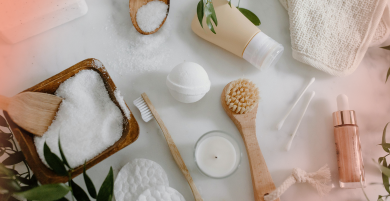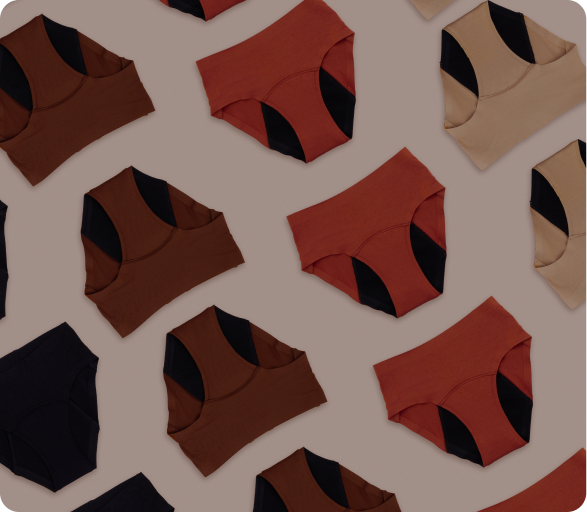We’ve all been there – those ‘not-so-fresh’ period days when scented feminine products seem like a quick fix to get those smells away. There are various menstrual hygiene products available that women can choose from, including pads, tampons, menstrual cups, and period underwear. Many of these products come with added scent or fragrance, which claim to help you feel fresh during your period.
However, a crucial question arises: Is it truly safe to use scented feminine products?
Together, let’s explore the safety concerns associated with scented menstrual products, address common questions women have about intimate hygiene, and provide essential tips for maintaining good vaginal health during your period.
Why Are Feminine Products Scented?
Scented menstrual hygiene products such as pads, tampons, and wipes are often promoted to mask menstrual odours. They typically contain fragrances or chemicals designed to keep you smelling pleasant. However, despite making claims like ‘So Fresh & So Clean’, these chemicals may pose potential risks to vaginal and menstrual health.
Are Scented Feminine Products Harmful?

The vagina is naturally self-cleaning and doesn’t need soap, chemicals, or perfumes to stay “clean.” It doesn’t need scented tampons or pads to mask period odour either. Many health professionals recommend avoiding scented products, especially if you’re sensitive to fragrances or prone to infections.
Here’s why:
-
Disruption Of Natural pH Balance
Your vagina maintains a delicate pH balance, which helps keep harmful bacteria at bay. Scented products can disrupt this balance, potentially leading to infections like bacterial vaginosis or yeast infections.
-
Skin Irritation
The skin around your genital area is sensitive, and the chemicals in scented products may cause irritation, redness, or allergic reactions.
-
Higher Chemical Exposure
Scented tampons and pads contain much higher concentrations of chemicals, such as aromatic compounds, terpenes (e.g., limonene), and other VOCs than unscented versions. The concentration of terpenes in scented tampons, for example, is over 200 times greater than those found in unscented versions, as are those of scented pads for the aromatic compounds benzene and xylene, which may be irritants or cause discomfort.
-
Increased Risk Of Infections
The fragrances used in pads or tampons can create an environment where bacteria thrive. This increases the risk of developing infections, including UTIs (urinary tract infections).
-
Masking Natural Odours
It’s important to note that vaginal odour is completely natural, especially during your period. Using scented products doesn’t address the underlying causes of odour but only temporarily masks it.
Are Scented Feminine Products Worth the Risk?
While scented menstrual hygiene products may seem like a good way to feel fresh during your period, they often do more harm than good. The chemicals used to mask odours can disrupt your vaginal pH balance, lead to infections, and irritate. Instead, opting for unscented, chemical-free options is a much healthier choice.
At Mahina, we prioritise your well-being by ensuring our period underwear is rigorously tested to be free from toxins and harmful chemicals. Our products are free from synthetic musks, volatile organic compounds, parabens, environmental phenols, fragrance chemicals, and dioxins—allowing you to trust your body’s natural processes without worry. Read more about the tests conducted by Mahina to be assured of your safety and hygiene. Remember, menstrual odour is normal, and caring for your vaginal health is far more important than masking natural scents.
By choosing safer menstrual hygiene options like Mahina’s period underwear, you’re not just protecting your health but also making a smart choice for long-term comfort. For more insights on the safety of Mahina’s period underwear, watch Dr Santoshi Nandigam explain why period care needs to be safe.









































